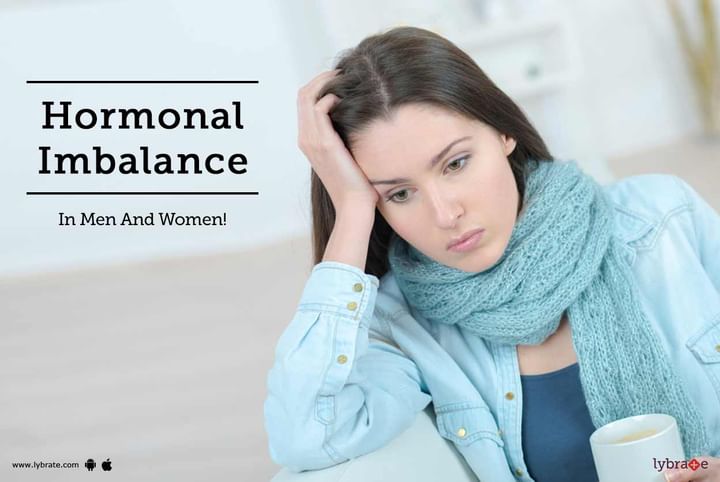Hormonal Imbalance In Men And Women!
Hormones are important messengers that play a pivotal role in the proper functioning of your body. Any imbalance in the hormonal level can throw life in jeopardy. Hormonal imbalance can affect a person physically, mentally as well as emotionally. In the present competitive world, with so much stress and anxiety, hormonal imbalance is on the rise. It can affect both men and women.
Factors responsible for hormonal imbalance in men and women
Many factors, either individually or collectively can affect and disrupt the hormonal balance in a person. The most common factors triggering a hormonal imbalance include
- Physical, mental and emotional stress.
- Menopause (in women) and Andropause (in men).
- Drugs and alcohol abuse.
- Unhealthy eating habits, leading to inflammation.
- Lack of any physical activity.
- Obesity, Type-2 Diabetes.
- The Endocrine gland does not function properly (due to an injury or an infection or old age). Hormonal imbalance may be age related. Certain chemicals (Diethylstilbestrol, DDT, Polychlorinated Biphenyls, Dioxin) also have the potential to disrupt the Endocrine function.
Symptoms of Hormonal Imbalance:
Some of the characteristic symptoms of hormonal imbalance include
- A sudden change in body weight (weight gain or weight loss).
- Anxiety, depression, and mood swings.
- Hair loss followed by thinning of hair.
- Irregular menses.
- Infertility.
- Erectile dysfunction.
- The appetite undergoes a change.
- A person may face digestive problems.
- Insomnia and extreme fatigue.
- Decreased libido.
Treatment:
Doctors may adopt any of the following treatments for hormonal imbalance
- Hormone Replacement Therapy (HRT): This treatment helps women to deal with menopause better. During and after menopause, the levels of estrogen and progesterone, particularly, go for a toss. This therapy aims at maintaining the hormonal balance by replacing the hormones your body either fails to produce or synthesizes in very little quantity.
- Following a healthy lifestyle go a long way in improving the hormonal imbalance.
- Exercise regularly. Meditation, breathing exercise, cycling, morning and evening walks are great stress busters.
- Follow a healthy sleeping routine.
- Limit your alcohol and caffeine intake. Refrain from smoking.
- Avoid taking birth control pills.
- Maintain a healthy body weight.
- Include avocados, egg yolk, gelatin, carrots, coconut oil into your diet.
- People with hormonal imbalance can benefit from Omega-3 fatty. Walnuts, chia seeds, flax seeds, olive oil are a rich source of omega-3 fatty acids.
- Ayurveda and herbal medicines have helped many people with hormonal imbalance.
- Some medications may help to improve hormonal imbalance (strictly on doctor recommendation).
- In extreme cases, surgery may be recommended.
Health risks associated with hormonal imbalance:
Hormonal imbalance can have adverse effect on the health resulting in
- PCOS (Polycystic Ovarian Syndrome): PCOS is characterized by irregular menses, infertility, hirsutism, hair fall, acne and weight gain. Women of reproductive age are mainly affected by PCOS.
- Low libido, tiredness, weight gain, erectile dysfunction, mood swings, and irritability (due to low level of testosterone hormone)
- Thyroid problems (Hyperthyroidism, Hypothyroidism and Grave's disease).
- Hormonal imbalance may also cause Diabetes and Adrenal failure.
- Irregular periods, mood swings, infertility, decreased sexual desire (low levels of estrogen hormone).



+1.svg)
